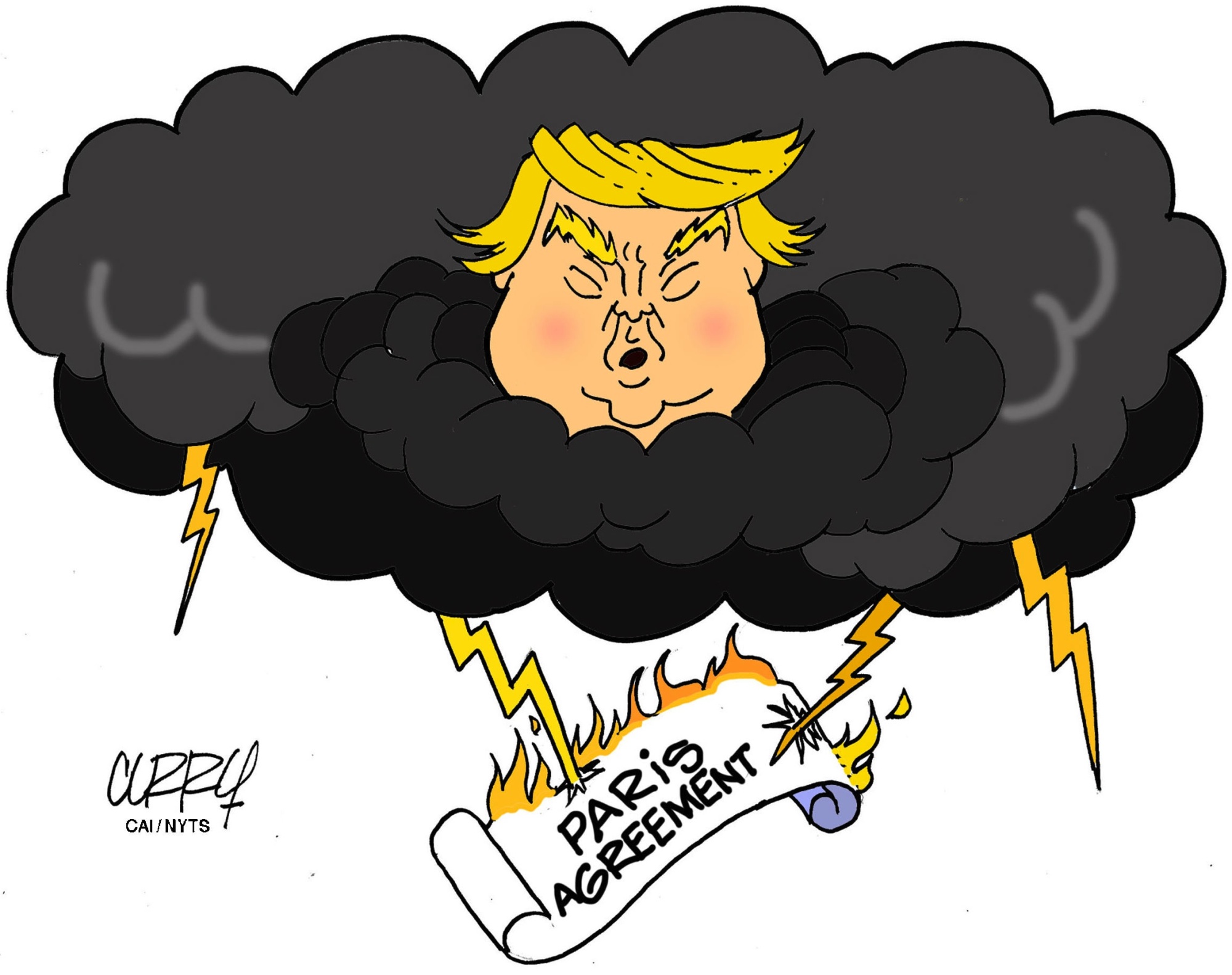There was no need for U.S. President Donald Trump to withdraw the United States from the Paris climate agreement to achieve his goal of overturning the Obama administration's global warming policy. This had already occurred through court rulings and executive orders, which effectively halted higher vehicle fuel economy standards (up to 23 kilometers per liter) and ended the Clean Power Plan program, which pushed electric utilities to shift away from coal. Moreover, national commitments to slash emissions made in Paris are voluntary. Countries can modify or ignore them. There is no enforcement or penalty for missing targets.
Under the Paris accord, countries made these commitments based on their own circumstances and political judgment. The U.S. pledged to cut greenhouse gas emissions by 26 to 28 percent from 2005 levels by 2025. The European Union promised to reduce emissions by 40 percent from 1990 levels by 2030. China said that its carbon dioxide (CO2) would peak by 2030 and that, by the same year, renewable fuels would represent about 20 percent of its energy use.
But as noted, none of these goals was binding. There was little, if any, loss of national sovereignty. The Trump administration could have accepted what it liked (presumably, cheap natural gas with lower CO2 emissions) and rejected what it didn't (say, the tougher vehicle fuel mileage standards). To make the same point slightly differently: Trump's actions were mostly symbolic and political. They were grandstanding, intended to impress his core supporters.


















With your current subscription plan you can comment on stories. However, before writing your first comment, please create a display name in the Profile section of your subscriber account page.